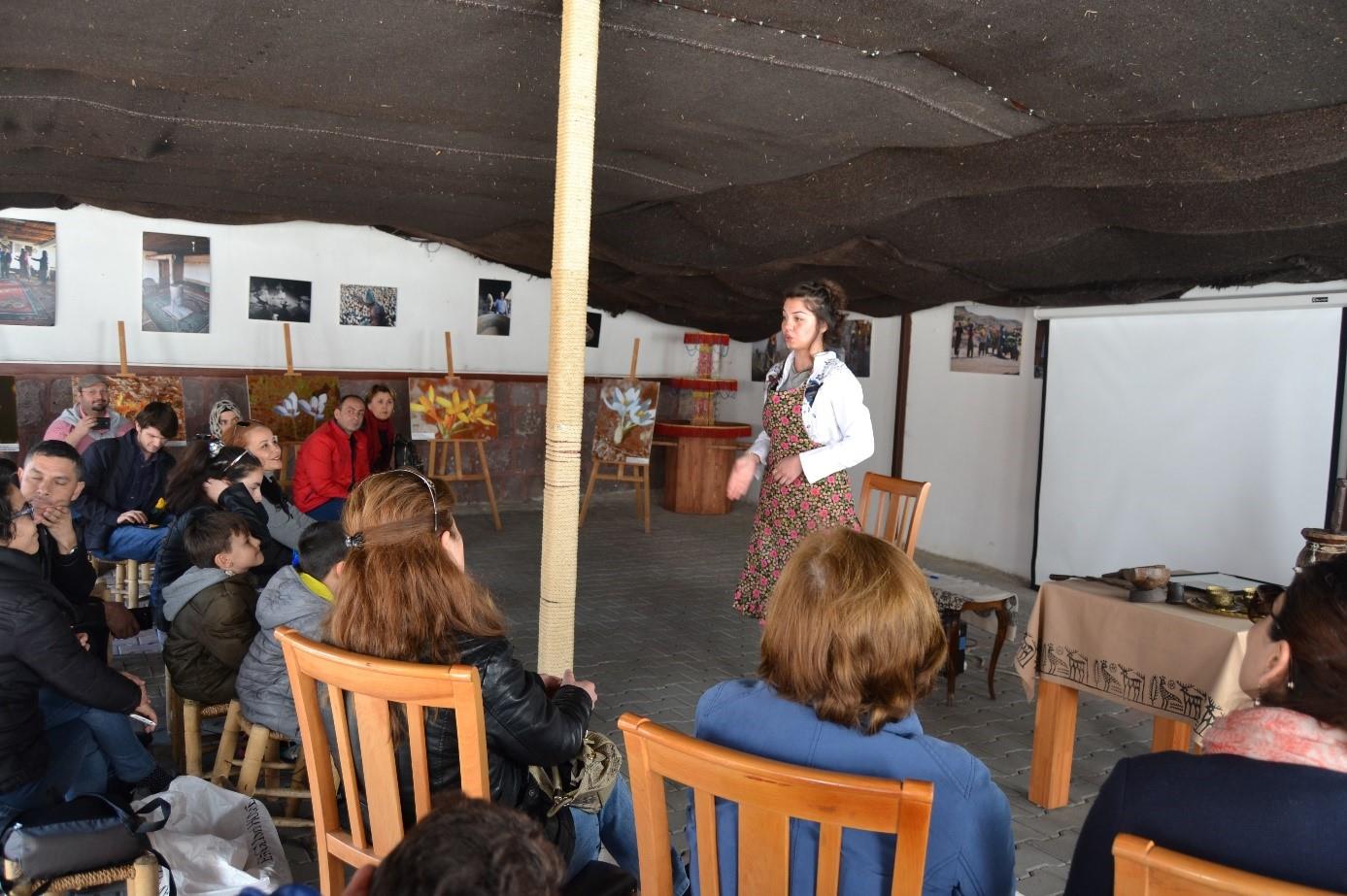
Dede Korkut culture is still kept alive in today with its wise expressions of proses and composes of verses in music tradition, various beliefs and social practices like giving names to children, engagement and marriage ceremonies funeral and dirge rituals. Also some cults of prophet Hızır, numbers, tree are rooted from Dede Korkut Culture. Values like generosity, hospitality, brave, mercy, solidarity mentioned in Dede Korkut Epics have an important role for cultural dialogue, mutual understanding and building peace between all segments of society.
Thanks to rich content of expressions, rituals and practices, all segments of society have roles in transmission. Epics of Dede Korkut are narration of prose stories and verses being transmitted in master-apprentice relationship by minstrels and bards accompanied with playing musical instruments.The element is also transmitted by story tellers with narration of prose stories, tale tellers with narration of tales from the epics and meddahs in their public storytelling tradition.Social Practices of the element are transmitted actively by family members, especially women, children, youth and all society. A manuscript book which was written in 15th Century is the main source for transmission of the element as written expression. Only two original copies, named as Kitâb-ı Dedem Ḳorḳud Alâ Lisân-ı Tāife-i Oğuzân and Hikâyet-i Oğuznâme, Kazan Beğ ve Gayrı called Book of Dede Korkut today, of this book has still remained today. This book is translated in contemporary Turkish and used for written expression of transmission by modern literature and taking place in curriculums of formal education.
Today, heritage of Dede Korkut is seemed in various areas of epic culture, folk tales and music and is still kept alive as a part of cultural identity. Therefore, Heritage of Dede Qorqud/ Korkyt Ata/ Dede Korkut, epic culture, folk tales and music was inscribed on the UNESCO Representative List of Intangible Cultural Heritage of Humanity on behalf of Azerbaijan, Kazakhstan and Turkey in 2018.


